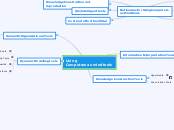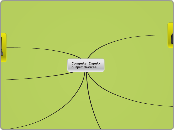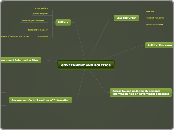Rationales for Using Computers
as Mindtools
Cost and effort benificial
mindtools used to construct knowledge and apply to any subject
Mindtools are free and available software
(Un)intelligent tools
Mindtools rely on learner
Decisions and planning are the responsibility of the learner
Computers serve as catalyst for skills
Knowledge Construction not reproduction
Constructivist use of teaching
process of how we construct knowledge is NB
Prior knowledge influences how we construct new knowledge
engage in external world
Distributing cognitive Processing
computers allow learners to be productive
goal of educators to allocate cognitive responsibility to learners
Learning with technology
Mindful engagement with tech
people control tools and learning by enhancing the PC capabilities
Learners as designers
People who design learn more that intended learners
Mindtools make learners think harder and more deeper
Using
Computers as mindtools
Dynamic Modelling tools
Describes dynamic relationships
Expert systems
Computer programs that stimulates how human experts solve problems
Microworlds
Exploratory learning environments
Manipulate and create entities
System Modelling Tools
Complex learning
Concepts stated as factors
SpreadSheets
Numerical record keeping systems
used to amplify mental funtions
Semantic Organizational Tools
Help to analyse and organise
Semantic Networking
Visual screen tools
concept mapping
Spatial representations of ideas
Database
Computerised Record keeping systems
Electronic filing cabinets
Knowledge Construction Tools
Process of knowledge construction by constructing things
learning though doing
constructionism
Conversation Tools
Telecoms
online communications
learners communicate effectively
Programmes designed to communicate and provide scaffolding
Support social constructivism
Hypermedia
Nodes
Video clips graphics or text
links info and network of ideas
Information Interpretation Tools
Search engines etc.
Visualization Tools
Help sensory systems
from mind to PC









